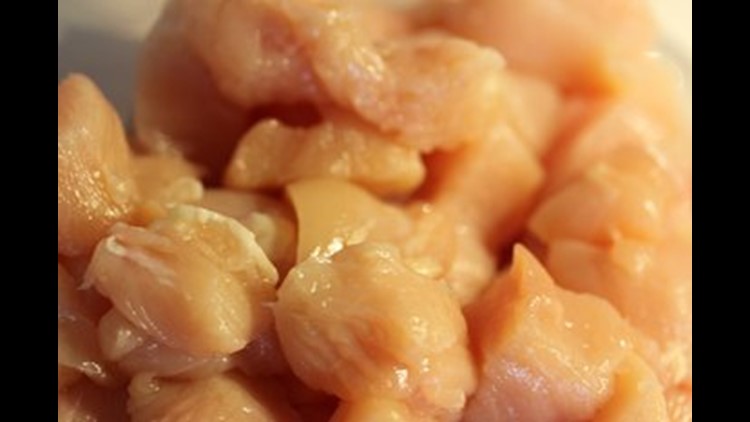“Do not wash raw chicken. During washing, chicken juices can spread in the kitchen and contaminate other foods, utensils, and countertops.”-CDC
Americans eat more chicken every year than any other meat. According to the Center for Disease Control, raw chicken is often contaminated with Campylobacter bacteria and sometimes with Salmonella and Clostridium perfringens bacteria.
If you eat undercooked chicken or other foods or beverages contaminated by raw chicken or its juices, you can get a foodborne illness.
- Place chicken in a disposable bag before putting in your shopping cart or refrigerator to prevent raw juices from getting onto other foods.
- Wash hands with warm soapy water for 20 seconds before and after handling chicken.
- Do not wash raw chicken. During washing, chicken juices can spread in the kitchen and contaminate other foods, utensils, and countertops.
- Use a separate cutting board for raw chicken.
- Never place cooked food or fresh produce on a plate, cutting board, or another surface that previously held raw chicken.
- Wash cutting boards, utensils, dishes, and countertops with hot soapy water after preparing chicken and before you prepare the next item.
- Use a food thermometerExternal to make sure chicken is cooked to a safe internal temperature of 165°F.
- If cooking frozen raw chicken in a microwavable meal, handle it as you would fresh raw chicken. Follow cooking directions carefully to prevent food poisoning.
- If you think the chicken you are served at a restaurant or anywhere else is not fully cooked, send it back for more cooking.
- Refrigerate or freeze leftover chicken within 2 hours (or within 1 hour if the temperature outside is higher than 90°F).


Call or see the doctor if you see the following signs of food poisoning:
- High fever (temperature more than 102°F)
- Diarrhea for more than 3 days that is not improving
- Bloody stools
- Prolonged vomiting that prevents you from keeping liquids down
- Signs of dehydration, such as:
- Making very little urine
- Dry mouth and throat
- Dizziness when standing up



